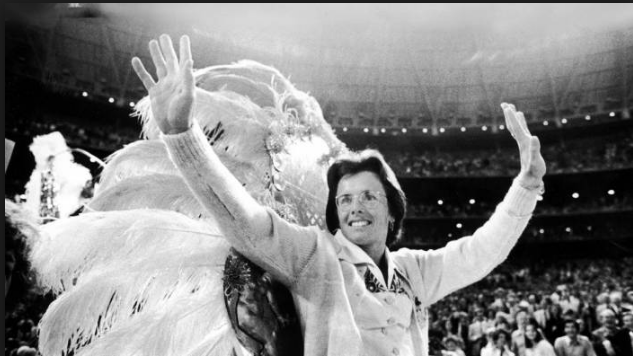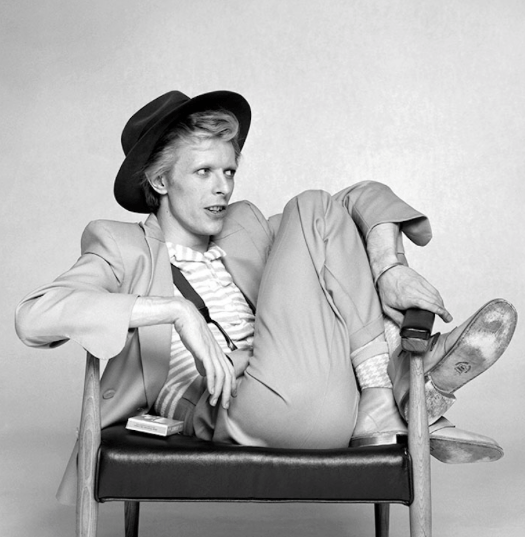Earlier this week, the BBC set themselves a somewhat formidable task of finding the 20thcentury’s greatest person. Four weeks of public deliberation across seven categories and 28 individuals culminated in scientist Alan Turing taking the title in a century where over eleven billion people inhabited the earth – quite the feat.
Yet, the BBC series was not without its controversy. The final was contested between the seven winners of the categories: Scientists, Sports Stars, Artists & Writers, Activists, Entertainers, Explorers and Political Leaders. It was most interesting to note that the seven respective winners were all men. But, despite the BBC facing criticism for this, each round went down to a public vote, which ultimately begs the question as to whether the viewers truly appreciate women’s contribution to arguably humanity’s most important century.
This means breakthrough sports icons such as Billie Jean King, the first Nobel Peace Prize winner Marie Curie and the first person who discovered humans and chimpanzees had a common ancestor, Jane Goodhall all failed to reach the final to name just a few. This has provoked criticism from many viewers and rightly so.

American former World No.1 professional tennis player and equality campaigner Billie Jean King failed to make it into the final. Image credit: Tennis World USA
However, in other areas, the finalists did combat the numerous other prejudices that individuals faced in the 20thcentury and their nomination by the public showed that they recognised this. In Nelson Mandela’s case, the extreme circumstances he went to overcome South African apartheid, as exemplified by his 27 years in prison on Robben Island, only to come out and forgive his captors meant he gained global admiration. Or Martin Luther King who championed non-violent protests against segregation in America culminating in his Washington rally which was attended by a quarter of a million people. This shows that the racism that existed in the 20thcentury and those who combatted it are, rightly, revered by the public.
Yet, it was not only the overcoming of racial stereotypes that were recognised by the public. In nominating David Bowie, it showed respect for his pioneering attitudes towards sexuality particularly through his alter ego, Ziggy Stardust, he pushed the boundaries of what society saw as sexually acceptable. The same can be said for Alan Turing, his nomination represented some posthumous appreciation for the prejudice he faced for his homosexuality at a time when it was illegal in the UK. This, as well as contemporary attitudes towards autism, limited the recognition that Turing gained at the time for his incredible achievements which include cracking the Enigma code, developing methods to test whether a computer is ‘intelligent’ as well as being one of the fathers of theoretical computer science. A true genius of his time, Turing is a more than worthy winner of the Greatest Person award and in doing so, the British public not only recognised his incredible achievements, but also the hurdles he had to overcome in order to reach them.

David Bowie’s nomination highlighted a positive change in attitude towards sexual freedom. Image credit: Flavorwire/Terry O’Neill/Morrison Hotel Gallery
Despite this, it was an incredibly hard task and the seven nominees truly represented the scope of human achievement in the 20thcentury. Having to choose between, conquering Antarctica, the Rumble in the Jungle, cracking Enigma, the I Have a Dream Speech, Life on Mars, Cubism and I Am Prepared to Die speech is a thankless task. There is a huge amount of positivity that can be taken out of the monumental challenge in choosing between these seven incredible, but vastly different achievements as posed by the BBC. This is that humanity has achieved so much from 1900-2000 in such a range of fields that the show was a rare source of optimism for the future and what humanity could achieve in the 21stcentury.
Whilst it is most certainly a tragedy that the public overlooked the achievements of women in the previous 100 years, the racial prejudice, homophobia and ableism that other nominees faced, overcame and reached the pinnacle of human achievement was aptly recognised by the finalists. Only 19 years into the 21stcentury we have many nominees including Usain Bolt, Lionel Messi, Barack Obama, J.K Rowling, Mark Zukerberg, Malala Yousafzai and Beyonce that would already be worthy winners. With 81 years of the 21stcentury remaining, the BBC’s next award will most certainly be an even closely fought contest than its previous one.